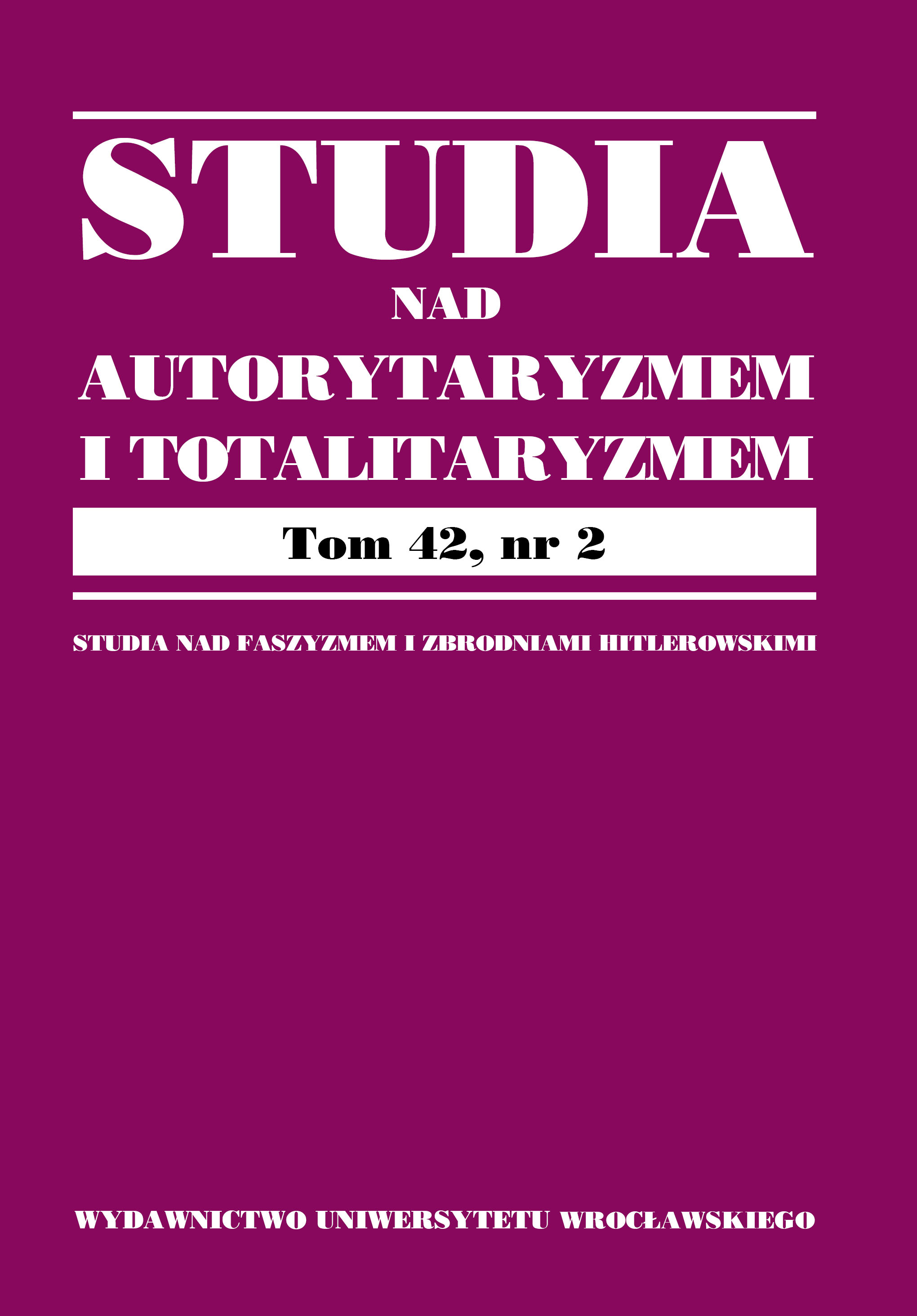

Articles

The problem of the scope of criminalization under Art. 256 of the Penal Code is important in the era of popularity of totalitarian ideologies.
Pop culture uses totalitarian symbols, which causes social familiarity with them and makes them insensitive to the threat of the content they have grown out of. Such a process may consequent-ly lead to the preparation of the ground for the introduction of totalitarian ideology in a way that is difficult to see. Such behavior should be punishable (as a crime or misdemeanor). It is not clear whether the provision of Art. 256 of the Penal Code includes criminalization. The purpose of this study is not to interpret the features of “fascism”, “totalitarianism”, or “fascist regime”. Such an analysis would require a very thorough query of the views of representatives of the doctrine and political science. The Polish legislator criminalizes behavior consisting, inter alia, in the public propagation of a fascist or other totalitarian state system. Such an act is punishable by a fine, restriction of liberty or imprisonment for up to 2 years. In art. 256 § 2 of the Criminal Code while the same penalty is threatened by producing, recording or importing, acquiring, storing, possessing, presenting, transporting or sending to distribute print, recording or other item containing the content specified in § 1 or being a carrier of fascist, communist or other totalitarian symbols. The key is to determine the meaning and mutual relationship of the two verbs: “praise” and “propagate”. In doctrine and jurisprudence, there are doubts as to whether propagation and praise intersect in scope.
If we adopt a narrower interpretation of the provision, then in fact behaviors consisting in introducing fascist (totalitarian) symbols in the public space do not fulfill the characteristics of a prohibited act under art. 256 § 1 of the Criminal Code. However, having adopted a broader inter-pretation, there is no obstacle to recognizing that the perpetrator introducing carriers of fascist or other totalitarian symbols into the public space promotes such a system.
Undoubtedly, the more careful editing of art. 256 § 1 and 2 of the Penal Code would avoid many doubts about the interpretation of these provisions. However, the skillful use of interpretation rules known in criminal law (primarily the interpretation of the use of derivative interpretation) allows criminals to be held accountable for the majority of socially harmful behaviors related to prais-ing, propagating, etc. totalitarianism, without violating the principles of a democratic state of law.